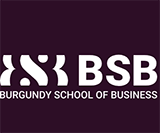Introduction and Overview of Burgundy School of Business
Established in: 1899.
Location: The main campus is located in Dijon, the capital of the Burgundy region of France. There are also campuses in Lyon and Paris.
Student size: There are about 2,850 students in total, of which 25% are international students.
History
In 1899, Léon Gadeau, an entrepreneur of the Dijon Chamber of Commerce, founded the Dijon Higher Business School (Esc Dijon), now the Burgundy Higher Business School, with the support of local industrialists and Burgundy wine merchants.
In 1900, Esc Dijon was officially recognized by the French government.
In 1916, the school began to enroll female students and became a coeducational school.
In 1919, the first batch of American students were welcomed.
In 1987, Esc Dijon became one of the 14 founding schools of the French Higher Professional College Conference (Conférence des Grandes Ecoles de Commerce).
In 1998 In 2000, the first international double degree was awarded.
In 2000, the first international courses and the first foreign language management courses in the Grande Ecole program were opened.
In 2012, the Paris campus was established.
In 2013, the Lyon campus was established and the first undergraduate program was opened.
In 2014, the Lyon Confluence Campus was established.
In 2015, Esc Dijon co-founded the University of Burgundy-Franche-Comté with 7 other schools.
In 2016, Esc Dijon was officially renamed Burgundy School of Business.
School Strength
Faculty: 91% of the school's teachers have a doctorate, 49% are women, and 48% are international teachers.
Teaching Resources: The school has established cooperative relations with 200 partner institutions around the world, providing students with rich exchange and learning opportunities.
Certification: As a member of the French Conference of Higher Professional Schools, it has three international authoritative business school certifications: AACSB, EQUIS, and AMBA, and is one of the 1% in the world One of the business schools that has obtained these three certifications at the same time.
Employment situation: The school focuses on cultivating students' practical ability. Through internships, corporate visits, exchanges with professionals and other activities, students' employment competitiveness is improved. Graduates have a high degree of recognition in the job market and can find suitable career development opportunities in different industries and fields.
Institutional nature
Burgundy School of Business is a private higher education institution.
Educational philosophy
Committed to cultivating future managers with innovative spirit, adaptability and social responsibility, by providing high-quality, personalized education programs, combining theoretical knowledge with practical projects, helping students master professional skills, cultivate critical thinking and practical problem-solving skills, in order to cope with complex and changing business environments and social challenges.
Key laboratories and disciplines
Key laboratories: 2003 In 2013, the Corporate Research Center (Ceren) was established, focusing on the research of organizational and governance models to enhance and reshape the business ecosystem based on the concepts of social responsibility, ethics, sustainability and diversity. The research areas cover decision-making and behavior, entrepreneurship and innovation, finance and corporate governance, wine and spirits management, art and cultural management, digital leadership, etc.
Key disciplines: Wine management is its trump card major, which is in a leading position in the world. In addition, cultural and art management, international business management, corporate finance and investment banking, data science and organizational behavior, green technology and corporate sustainable development, artificial intelligence and digital technology management and other disciplines also have strong strengths and characteristics.
Department settings
No clear division of departments was found, but from the perspective of professional settings, it mainly includes the Department of Management, the Department of Wine and Spirits, etc., providing educational programs at different levels from undergraduate to doctoral.
Ranking
In 2020, the Financial Times ranked European Business School 80th.
In 2020, the Financial Times ranked Master of Management 74th.
In 2022, the Financial Times ranked Master of Management 62nd.
Expenses
Undergraduate program: Undergraduate in Management, Lyon / Dijon, 3 years, taught in English or French, tuition fee 9,000 euros/year, B3 transfer tuition fee 10,200 euros.
Master's Programs:
Master of Management, Dijon, 2 years, taught in English or French, tuition fee 13,000 euros/year.
Master of Culture and Arts Management, Dijon, 1 year, taught in English, tuition fee 15,500 euros.
Master of Luxury Management and Innovation, Dijon, 1 year, taught in English, tuition fee 15,500 euros.
Master of Corporate Finance and Investment Banking, Dijon, 1 year, taught in English, tuition fee 15,500 euros.
Master of Data Science and Organizational Behavior, Dijon, 1 year, taught in English, tuition fee 15,500 euros.
Master of Green Technology and Corporate Sustainability, Lyon, 1 year, taught in English, tuition fee 15,500 euros.
Master of Artificial Intelligence and Digital Technology Management, Lyon, 1 year, taught in English, tuition fee 15,500 euros. Euros.
Master of International Business Management, Dijon/Lyon, 2 years, taught in English, tuition fee 9500+15500 Euros.
Master of Wine Management, Dijon, 1 year, taught in English, tuition fee 18000 Euros.
MBA in Wine and Spirits, Dijon, 1 year, taught in English, tuition fee 34000 Euros.
Master of International Trade in Wine and Spirits, Dijon full-time 13-15 months, Paris part-time 20-22 months, full-time tuition fee 15500 Euros, part-time if self-funded is 13500 Euros, if covered by the work unit is 14500 Euros.
Campus
Dijon Campus: As the main campus, it is located in the center of Dijon, surrounded by complete living facilities and a strong cultural atmosphere. The campus has a unique architectural style and advanced teaching facilities. It has modern teaching buildings, libraries, laboratories, etc., providing students with a good learning and living environment.
Lyon Campus: Located in Lyon, the second largest city in France, it has an important economic and cultural status. The establishment of this campus provides students with more learning and practice opportunities, strengthens the school's cooperation with local enterprises and institutions, and broadens students' employment channels.
Paris Campus: Located in Paris, the capital of France, it has rich business resources and cultural activities. The Paris campus provides students with opportunities to contact international enterprises and institutions, which is conducive to students expanding their international vision, improving their comprehensive quality, and laying a solid foundation for future career development.
-
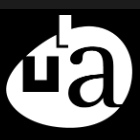
University of Angers
-
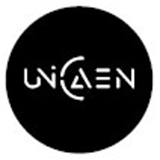
University of Caen Normandy
-
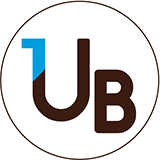
University of Bordeaux
-
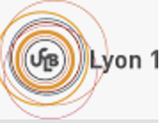
Claude Bernard University Lyon 1
-
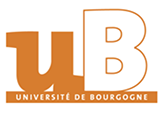
University of Burgundy
-

CY Cergy Paris University
-
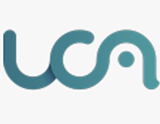
Clermont Auvergne University
-

University of Artois
-
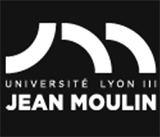
Jean Moulin University Lyon 3
-

University of Franche-Comté
-

Mesoamerican University
-

Istmo University
-

Mariano Galvez University of Guatemala
-

Regional University of Guatemala
-

Galileo University
-

Francisco Marroquín University
-

Rafael Landívar University
-

University of the Valley of Guatemala
-

University of San Carlos of Guatemala
-

Technological Institute of Tlaxcala Plateau
-

Golfo University
-

Technological University of South Sonora
-

Technological University of Huejotzingo
-

Tizimín Institute of Technology
-

Chilpancingo Institute of Technology

